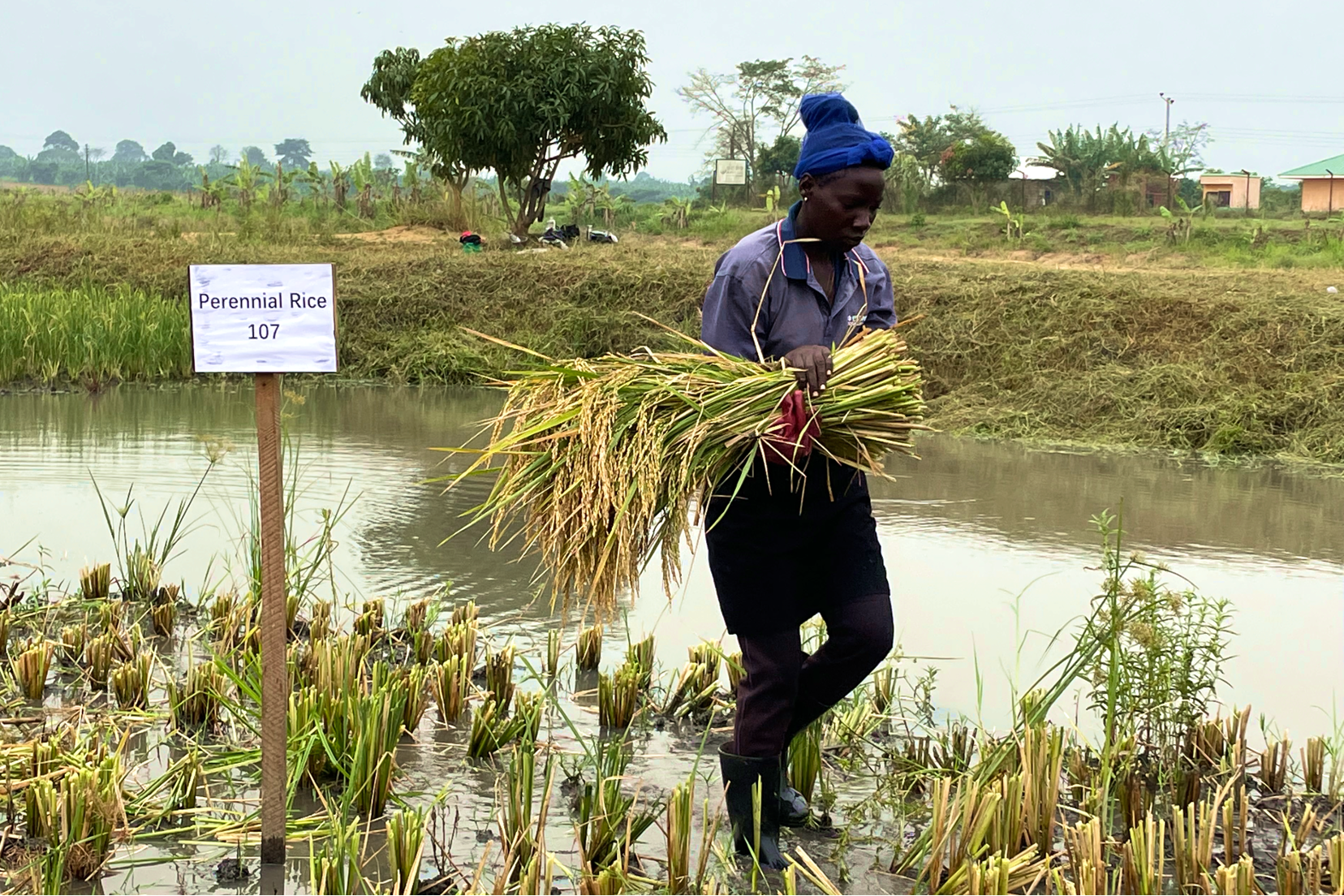Stepping into Uganda, an East-Central African country dubbed as a “Pearl of Africa”, one is immediately enveloped by the lush landscapes and the warmth of its people. Agriculture forms the backbone of the country, engaging a majority of the population in farming activities to vary extents. Uganda features staples like matoke (a type of plantain), posho (maize porridge), rice, cassava, and sweet potatoes. Particularly, rice holds a significant place in daily meals.
Rice production in Uganda started in 1942 mainly to feed the World War II soldiers. However, due to a number of constraints, production remained minimal for a long period of time. The power of genomics is bringing a new chapter to the history of rice growing in Uganda.Under the framework of the FAO (UN Food and Agriculture Organization)-China-Uganda UN South-South Cooperation (SSC) Program, perennial rice has been introduced into Uganda with the help of BGI Group.
 A local farmer is harvesting perennial rice in Uganda.
A local farmer is harvesting perennial rice in Uganda.
Perennial rice is designed to be harvested multiple times over several years from a single planting. This revolutionary approach to rice cultivation offers the promise of reducing the need for constant replanting and improving soil health due to less disturbance.
Katwalo George, a farmer from the Namutumba district in Eastern Uganda, shares his experience with PR107, a perennial rice variety that has been introduced into his community. "I'm one of the farmers who got a chance to try out perennial rice. It has a better aroma and larger grain size compared to local varieties, aligning with the preferences of local farmers,” he explained.
"Based on my own experience, the yield reaches up to 1.5 tons - 2.5 tons per acre. It's about one and a half to two times higher than local varieties." When asked about the yield of PR107 compared to other crops, George noted. "Perennial rice can solve some of the food issues. "
“Recently I received some farmers who came to my farm, and most of them are interested in it. They are curious about how one can cut the crop and manage the cuttings to achieve new growth,” he adds, highlighting the curiosity and interest PR107 has sparked among his peers.
George is committed to expanding his cultivation of perennial rice due to its promising advantages, “I plan to grow it on a larger acreage."
George admitted that local farming techniques still need to be enhanced. He identifies a yield gap between his farm and those managed by Chinese teams, including BGI technicians and experts from the SSC Program, attributing it to differences in farming techniques.
The potential for perennial rice to revolutionize agriculture in Uganda is significant. As more farmers adopt this innovative variety, the hope is for a future where food security is strengthened, and the agricultural landscape of Uganda is transformed for the better.
Source:
Britannica – Uganda:
https://www.britannica.com/place/Uganda/Daily-life-and-social-customs
Perennial rice technology could help improve Africa's food security:
https://www.chinadaily.com.cn/a/202402/20/WS65d4a805a31082fc043b82ac.html
Uganda National Rice Development Strategy (NRDS)



